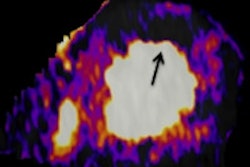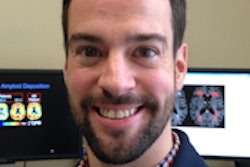GE Healthcare is touting the results of four clinical trials that show its DaTscan tracer with SPECT brain imaging was associated with a high level of diagnostic effectiveness.
The papers were presented at the American Academy of Neurology (AAN) annual meeting in Philadelphia.
The multicenter studies showed high overall sensitivity and specificity for the use of DaTscan images in detecting dopamine deficiency, which is associated with several conditions, including Parkinsonian syndromes.
Across all four studies, when images were assessed by onsite readers, overall sensitivity was 91.9% and specificity was 83.6%. When images were assessed blindly by a panel of independent experts, overall sensitivity was 88.7% and specificity was 91.2%.
For some patients, "we are not certain whether we are dealing with a dopamine deficiency problem," said Dr. Donald Grosset, consultant neurologist and associate professor at the University of Glasgow, who presented results at the conference. "In those cases, it can be extremely helpful to have a scan that gives an answer to that [question] in a simple yes or no fashion. The benefit to patients is that it puts them in the correct diagnosis group."
DaTscan achieved "very high tolerability" among patients in the studies, Grosset added. There have been reports in clinical trials of headache, nausea, vertigo, dry mouth, or dizziness of mild to moderate severity among some participants. In postmarketing experience, hypersensitivity reactions and injection site pain also have been reported.
The researchers are now expanding their analysis of the clinical data to investigate potential differences between men and women in the performance of DaTscan, and whether patient age is also a factor. "The next phase of this [research] will begin to look deeper into specifics about age, gender, and other variables," Grosset said.
The U.S. Food and Drug Administration (FDA) has approved DaTscan for use with SPECT in visualizing dopamine transporters to help diagnose adult patients with suspected Parkinsonian syndromes.



















